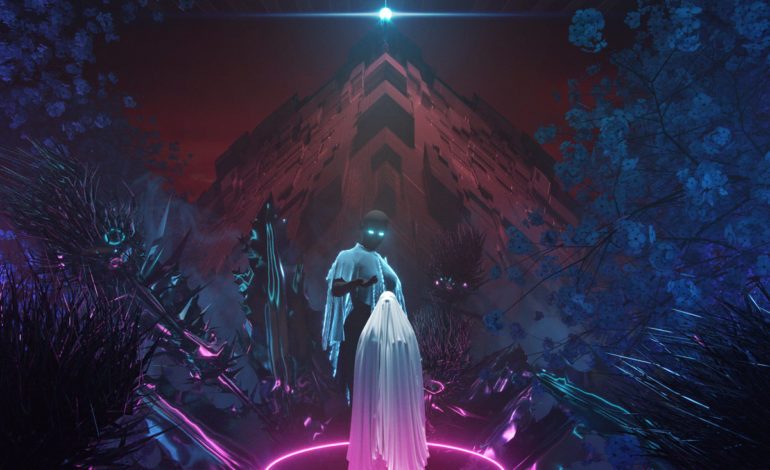

Session musician’s cinematic, experimental solo release
Working as an instrumentalist for artists such as Johnny Cash, Neil Diamond and the Dixie Chicks since 1996, there really is no reason Jonny Polonsky needed to release a solo record, let alone six. His passion for music and artistic curiosity led him here, both of which are evident all over his most recent release, Kingdom of Sleep.
Entirely self-produced, this album is an ambitious attack on everything rock is “supposed” to be. It is psychedelic, edgy, alternative and above all, experimental. Reminiscent of films like Blade Runner and ‘80s rock, Kingdom of Sleep is suddenly much more than just another rock record; it’s almost something akin to a film score.
Cinematic doesn’t even begin to describe these eight tracks. On Kingdom of Sleep, Polonsky takes the conventions of film and creates songs that would easily fit each scene, however, he is not storytelling. This is no concept record but it definitely derives from a similar place.
Take “Take Me Home” for example. Combining Polonsky’s signature raspy vocals with deep bass, gongs and electronic work creates a song worthy of Hollywood’s greatest science fiction. While this track is similar to the credits accompaniment of various genre films, songs like “A Willing Eye” directly call back specific cinematic conventions, such as the final scene. With its fade-in, bright tone and expert use of synths, “A Willing Eye” feels like the last track used in a movie, after all the action has been resolved and the loose ends have been tied up. It is a fitting conclusion to both album and story.
Clocking in at just over thirty minutes, Kingdom of Sleep is incredibly tight, beginning to end. With only eight tracks, Polonsky wastes no time and refuses to include anything that isn’t absolutely necessary. Despite all of his previous work, this album alone proves Polonsky’s excellence as a sophisticated songwriter.
Throughout the album, Polonsky draws from his eclectic arsenal. Rather than writing a rock record with a standard four-piece, he taps into the unconventional, utilizing everything from a piccolo to a children’s choir. The harmonica featured on the mostly instrumental “Aenerone” is a particular highlight of Polonsky’s musicality on the record.
Perhaps the album is most refined on its standout track and first release, “The Weeping Souls.” The percussion used here is particularly strong. Not only is there a sweet rolling drum under the verses and a deep, full sound holding down the chorus, but Polonsky’s voice actually does double the work, functioning as both lead vocals and percussion. The articulation on “Take a look around” during the chorus allows the consonants to become a second percussion line, further demonstrating Polonsky’s master-level songwriting skills.
Being such a short record, and one so musically and aesthetically advanced at that, Kingdom of Sleep is unsurprisingly scarce in terms of lyrics. Nevertheless, Polonsky packs the punches when he needs words to get his point across. Lines like, “In the courtroom of your mouth/ you put all tongues on trial,” from “Ghost Like Soul” prove Polonsky’s lyricism. He simply does not need paragraphs upon paragraphs to validate the message behind Kingdom of Sleep. The music does the work itself.
There is power in simplicity, something Polonsky no doubt understands intimately. While there is nothing overtly fancy or extremely complicated about this record, there is nothing extraneous about the final product. It is deliciously concise and straightforward, yet still thought-provoking and interesting. Kingdom of Sleep is worthy of being put on repeat and becoming a soundtrack to everyday life.
More resonant of film scores than rock albums, Polonsky’s Kingdom of Sleep is undeniably an impressive release. Having worked with some of the biggest names in modern music, this album proves exactly why he’s been part of those projects. Polonsky’s musicality and fearlessness come together on this record in the perfect storm to create a cinematic, psychedelic solo release.
